If You Want Your Kids to Be Discipled by the Godless, Send them to Government Schools
Christianity Today (hereafter CT) would like to give you some advice on how to parent your child through the educational process.
In her September 6th editorial, “Public School Can Be a Training Ground for Faith,” CT theology editor Stefani McDade weighs in on the side of what she calls “public education” (more on that in a moment). McDade rightly recognizes that the topic of how, where, and with whom to educate your children is receiving renewed attention. I will go a bit further: It may be the case that a serious re-examination of how our society educates children is under scrutiny like never before.
With the revelatory work of parents in Loudon County, VA, and alternative media figures like Chaya Raichik (LibsOfTikTok), parents have experienced an educational apocalypse in recent years. This heightened awareness of what’s really going on in public school classrooms began when parents got air-dropped into their children’s Zoom classes during the government shutdown of public life during the COVID scare. Sitting at the table and overhearing what publicly-funded activists were actually teaching their students forced a sea of parents into a reckoning with how the weaponization of education was being wielded against their values.
That unveiling resulted in a tidal wave of withdrawal from the public school system. This was an unprecedented departure—but one very much in line with the kind that evangelical figures like Southern Baptist Theological Seminary’s President Albert Mohler and Voddie Baucham, Dean of Theology at African Christian University in Lusaka, Zambia, have been calling evangelicals to execute for years now.
Education as Christian Discipleship
As far as she goes, McDade is still right to consider how children are educated, which is a critical question for Christian parents and people who are called to love their neighbor to answer well (and biblically). For McDade and every other Christian making a thoughtful decision on this topic, the essential task is to ask what God has said on the matter. And for us to do so, even briefly, requires defining the term.
The term “education” rarely appears in evangelical English translations of the Bible. But Scripture regularly addresses the concept of transferring wisdom, knowledge, and skill. Where the Bible addresses this subject, it does so under the heading of what we refer to as “discipleship.”
Matthew’s locus classicus is the beloved Great Commission of Matthew 28:16-20 where Jesus defines “discipleship” for us as “teaching them to obey all” that He commanded. This concept builds on and extends the famous admonition of Deuteronomy 6:1-9 where God commands the families and nation of Israel to structure their lives and their children’s lives around obedience to the Lord’s statutes. Extending this tradition, Ephesians 6:4 instructs Christian fathers to bring their children up in the discipline and instruction of the Lord.
That particular phrase, the “discipline and instruction of the Lord,” draws on the Greek concept of paideia, a comprehensive way of life, thinking, and loving that synchronizes perfectly with Jesus’ insistence that the nations be taught to obey all He commanded. Well-discipled Christians understand that all education is discipleship. The only question is whether or not that discipleship is centered on loving obedience to Christ or antipathy to the Lord. And no less an authority than Jesus Himself gives us the stakes: “A disciple (some translations have “pupil” rather than disciple because the concepts are so tightly wedded) is not above his teacher, but everyone when he is fully trained will be like his teacher” (Luke 6:40).
Interestingly, neither the aforementioned texts nor the rich, ancient tradition they represent appear in McDade’s editorial. The discerning reader can be forgiven for suspecting that it is precisely because of the reality Jesus gives us above.
Here, it is crucial to define another term from McDade’s editorial. In it, she uses the popular framing of “public education.” Intentionally or not, McDade is drawing on the same distorting sophistry employed by the pro-abortion industry when they changed their messaging about the subject of their ghastly work from “baby” to “fetus.”
Christians, and even thoughtful non-Christians, would be wise to stop talking about “public education” and start talking about “government education,” with all of the gory connotations that phrase raises through association with government spending, government bureaucracy, and government cheese. Make no mistake, it is the “Government” that sits as the “Master” of government education discipleship. And the vast majority of pupils it churns out—well-trained through its hold on them for a minimum of 1,260 hours every year for thirteen years—turn out to be very much “like [their] master.”
John Dewey, the father of modern government education, was well known as a thoroughgoing atheist, and the discipleship system he designed, which continues through the power of the Department of Education, does what it intends to do with remarkable efficiency. Far from grateful and obedient disciples of Christ, government school disciples have created a society of materialists who reject the idea of a transcendent moral order, believe the murder of inconvenient children should be legal in most cases, and find destructive, dehumanizing sexual degeneracy acceptable in a way unprecedented in human history (and even outside of contemporary late stage materialist Western culture).
Again, Jesus’ wisdom is born out: The disciples really do become like their master.
Superficial Assumptions Worth Testing
Because McDade clearly does not understand education from a biblical perspective, both its purposes (cultivating virtue) and its ends (making disciples of Christ), she scatters her article with arguments built on human reasoning and superficial assumptions.
These deserve to be examined more closely and questioned. Or should we say, “tested?”
Strength Training? More Like Facilitating Catastrophic Injuries
First, the dominant motif (reflected in the barbell image CT chose for the article’s image) for McDade is strength training.
She argues that, when it comes to sending your kid off to government schools, you can:
“Think of it like strength training: Your children need to build muscles of faith, and public school can provide weight to lift while you’re around to spot them. Let them wrestle with worldly counternarratives to God’s truth while they’re still under your care. That may feel risky, but the alternative—keeping them sheltered, then letting them be exposed to everything all at once when they leave home for work or college—is risky too.”
The most obvious failure of the analogy is in weight training itself: No child can be safely placed under a 500lb barbell. And the crushing burden of government education far outweighs even that comparison. Even if the student could “move the weight,” the result would be a catastrophic injury.
McDade’s weightlifting analogy is ultimately a rewarming of the trope that Christian families send their children to government schools as “missionaries”—to be salt and light in a dark, decaying world. Yet no mission organization deploys children to countries hostile to Christianity in ways comparable to children being handed over to anti-Christian government schools. Is there an argument for Christian teachers working in government schools as missionaries? Perhaps, if trained, cared for, and supported in ways comparable to missionaries in hostile countries.
But not children. Never children. Those places, the hostile countries and the hostile classrooms of government education, represent a weight no child can bear.
Furthermore, in this analogy, McDade assumes something that, when even slightly interrogated, reveals itself to be ridiculous: Government schools are a particularly unique place where “worldly counternarrative to God’s truth” is encountered. No parent with real-world experience can find that nonsense credible.
Interestingly, McDade says her child (note: singular) is a toddler. The reader cannot help but wonder if CT needed a writer of such inexperience to offer such a silly idea.
We live in a world where every institution other than the best churches is hostile to the Christian faith. Disney, the NBA, the DOJ, Amazon, and Kroger all see it as an obligation to push godless progressive ideology in every cartoon, commercial, and cereal brand. One must strain to think of how a child might be insulated from “worldly counternarratives to God’s truth” to any degree in such a culture as ours.
On the contrary, the best place for students to be exposed and inoculated to such forces is in wise Christian homes and private Christian schools, but in ways appropriate to the pupil’s developmental stage and within the paideia of the Christian faith, which makes clear the ramifications of the alternatives.
Finally and briefly, McDade’s weight-training comparison never comes close to addressing the unchecked wildfire of sexual abuse in public schools, a crisis that goes largely unheard in our culture but whose cases dwarf even the combination of other places of abuse much more commonly discussed. What particular regimen would McDade suggest for training seven-year-old students to deal with that ongoing catastrophe? The reader is left only to wonder.
No, Hostility to Christianity is not Declining
Second, McDade assumes that the decline of naked atheism represented by the New Atheists within government schooling somehow indicates the spiritual climate of government schooling is on the upswing.
She writes:
“It’s worth noting that I attended high school from 2003 to 2007, near the height of fervor around New Atheism. That context, especially in California, made it socially acceptable in my school to openly mock Christianity and anyone who identified with it. But children in most public schools probably wouldn’t have the same experience today. New Atheism has fallen out of style, and some recent research has shown that vitriol toward religion generally and Christians specifically has significantly declined over the last decade or so.”
While this convenient assumption rightly recognizes that even Richard Dawkins is no longer a New Atheist, it fails to ask the obvious question of what has taken the place of old-school fashionable secularism.
The answer is that resurgent paganism has displaced the old (non) religion. Instead of foolish atheists enjoying the benefits of cultural Christianity while scoffing at the Giver of those benefits in an ungrateful fashion, teenagers now have Witchtok and celebrities like Aaron Rodgers, Machine Gun Kelly, and Megan Fox glamorizing the use of mind-altering ayahuasca in occult ceremonies to commune with spirit beings who guide them.
The New Atheists cleared the deck of religious wisdom about demons and the Bible’s prohibition of pharmakeia and the occultists are enjoying the open playing field.
A far more honest assessment of the state of the public square in America, and by extension, government schools, is found in Matthew 12:43-45:
“When the unclean spirit has gone out of a person, it passes through waterless places seeking rest, but finds none. Then it says, ‘I will return to my house from which I came.’ And when it comes, it finds the house empty, swept, and put in order. Then it goes and brings with it seven other spirits more evil than itself, and they enter and dwell there, and the last state of that person is worse than the first. So also will it be with this evil generation.”
Sure, maybe the “New Atheist” movement has petered out. However, New Paganism has left the last state of government schools far worse than the first. This is, indeed, an evil generation.
Teenage Experience is not the Best Teacher—and McDade is no Exemplar
Third, McDade’s editorial argument relies heavily on anecdotes from her own experience with various methods of discipleship/education. She writes positively about her time in homeschooling, dismissively of her season in private school, and warmly of the benefits of her time in government education.
“By the time we moved to Northern California, where I began high school, I was faring far better socially, culturally, and academically. But, there, a new obstacle arose, one I’d only gotten a taste of in middle school: I was bullied for my faith at school.
There was a group of boys, and even a couple teachers, who often teased me for my faith. Once in class, for example, we were reading a passage from Heart of Darkness by Joseph Conrad and came to this line: “Or you may be such a thunderingly exalted creature as to be altogether deaf and blind to anything but heavenly sights and sounds.” My teacher interrupted to say, “Like you, Stefani.” The same teacher signed my yearbook, “You have a great brain. Don’t be hindered by dogma.”
Now, I know I did myself no favors in how I responded—due to my strong personality, deeply ingrained convictions, and ministry upbringing—but it was bullying all the same. It was, at times, rather miserable. But it was also motivating.
I look back on that time now as pivotal for my spiritual formation. Until then, I’d mostly been living under my parents’ faith; it was something I just took for granted. I didn’t know how to articulate my beliefs because I’d never had to defend them.”
The unstated assumption here is that McDade is a kind of exemplar—the Christian student who was not “isolated” or “sheltered” within a Christian educational environment but instead honed by the “challenge” of the government school system, emerging with her faith intact and better able to live as a Christian adult.
But does that story bear scrutiny?
McDade works for Christianity Today, an organization demonstrably loyal to the same progressive worldview of those who run the government school system. Southern Baptist pastor Chase Davis also found evidence of McDade’s commitment to fashionable Marxist social movements on her social media.
It appears that McDade’s education has left her like the master of the system she expresses thanks for. As disciples of Christ, thoughtful Christians should not be surprised by this.
Conclusion
In conclusion, McDade has offered the kind of advice that gets children hurt and perhaps even worse. Her unsubstantiated assumptions cloud her vision of the rich Christian tradition of discipleship. Her own experience leaves her unable to see how her education has left her handicapped. And her position as a “theological editor” no doubt encourages her with an unearned confidence to opine on such weighty matters as how to shape a child’s soul.
Her counsel to Christian parents is dangerous, even destructive, and fails to account for the explicit instructions that God gives Christian parents in the Scriptures.
Far from helping to strengthen children (and families) for God’s calling on their lives (and households), she instead pushes for exposing children to dangers they are unprepared for, both physically and spiritually. She is willing for you to run your precious children up the hill into the cannon fire of anti-Christian government education. That’s not “strength training.” That’s a suicide mission.
Wise Christian readers will hear the sulfurous voice of the “Master” of government education speaking through her words and reject it.
Instead, they will seek out the more excellent voice of Jesus Christ, the true Master, as they make crucial decisions about how to raise their children in the fear and instruction of the Lord.
-

Jeff Wright has served as the Pastor of Midway Baptist Church in Cookeville, TN, since 2011. He holds an M.A.R. from Liberty Baptist Theological Seminary. His vocational ministry is aimed at maturing Christians in healthy churches making disciples for the good of their neighbors and the glory of Christ. In addition to church service he works in classical Christian education. Jeff is married to Christie and they have five children.




